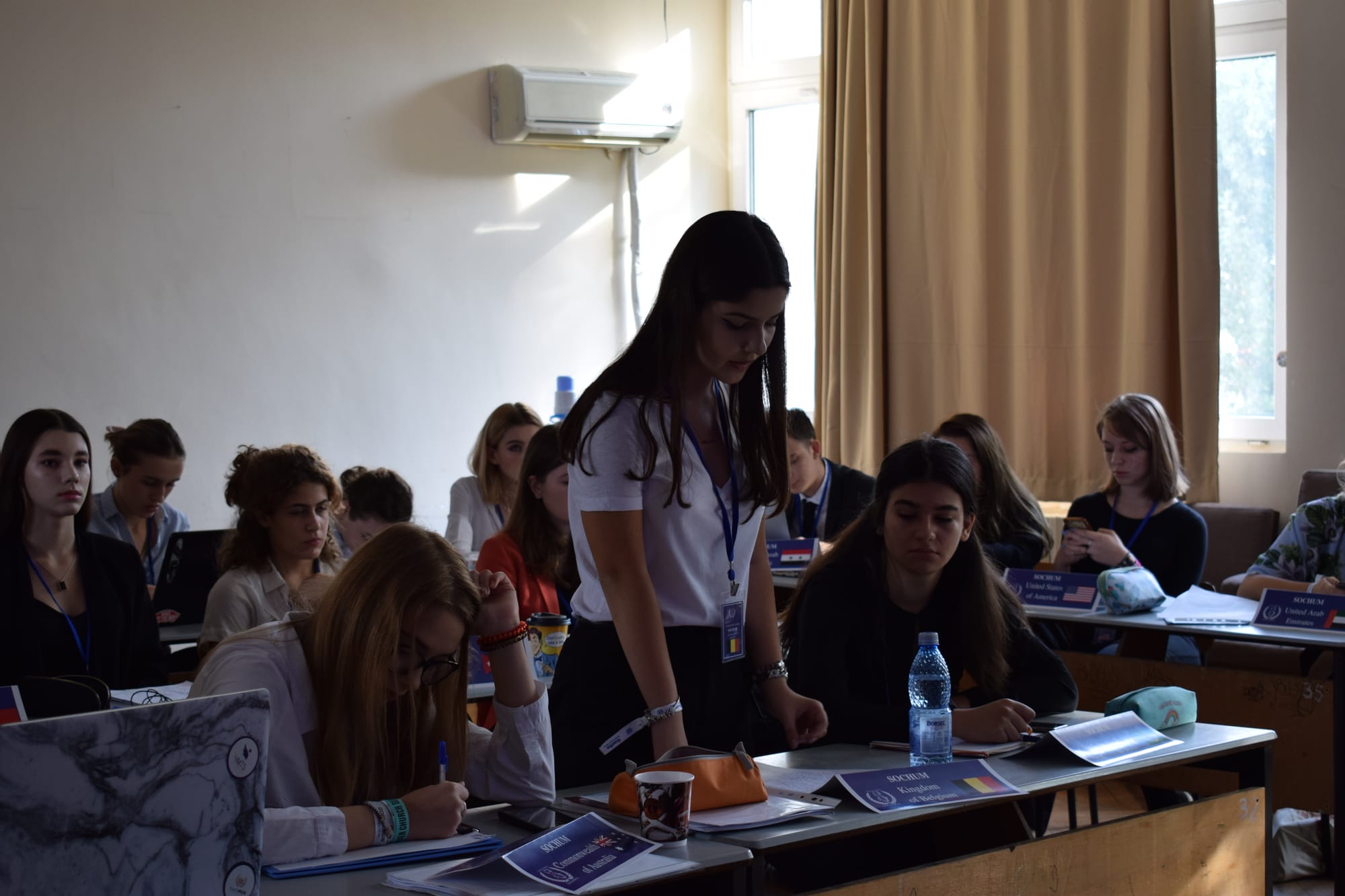SOCHUM, day 2

By Ada Georgescu
In the SOCHUM committee, the UK proposed the subject the life of the mother after a failed abortion, which was accepted by the chair. The duration of the debate was said to be 15 minutes long, 1 minute and a half per speaker.
The UK decided to speak up first. They started out strong and confident, giving the other delegates a lot of facts, numbers, sources and statistics. They talked about how women who would keep the child would be more vulnerable to poverty and domestic violence. A lot of delegates agreed with the UK, like the Russian Federation (who also added postpartum depression when keeping the child) and Burkina Faso (who also spoke about the side effects of giving the child up for adoption). Afghanistan said that mistakes always happen and that it’s a woman’s responsibility to care for the child during and after birth.
The USA has also talked about the discrimination against mothers, also adding statistics to sustain its statements. Syria has mentioned that sexual education should be a family matter, not a public one. Congo has agreed with them (adding that foster homes are a real thing and should be used in case of adoption). Belgium said that this choice would be highly influenced by the culture of said country and that there are negative side effects after birth. The UK stated that women who get abortions are less prone to having mental health issues. The United Arab Emirates mentioned that they have a 10 billion population (sic!) and no noticeable poverty line. The mental health of a woman is very important to them (while discussing postpartum depression). The USA added to their speech that all mothers love their children. That statement would cause a lot of controversy later on. Sweden spoke about how abortion would be a life taken, using that as their main argument.
This is where the debate should’ve ended, but China proposed a motion of extension, prolonging the debate for 15 more minutes. They also talked about how some children would be born with diseases if not aborted. Kongo said that if economically speaking you cannot help the child, it’s advised to get an abortion. The Russian Federation was against USA’s opinion, saying that postpartum depression is (once again) a real thing and that, additionally, children in adoption centers would be more prone to becoming juvenile deliquents.
Burkina Faso spoke about how people are actually a lot safer in adoption centers, like in Russia. Canada said that having a child takes a lot of responsibility, financially and emotionally. Brasilia agreed with the Russian Federation. Saudi Arabia spoke a lot, giving a lot of important opinions and factors, drawing the committee’s attention to the fact that the pregnancy could be a result of incest or rape. Thailand was one of the only countries who actually agreed with the USA (also important to note that depression could happen to any of us). Australia also talked about their orphanages. Kazakhstan was highly against USA’s speech and agreed with Russia, again noting to the medical issues.
In conclusion, the atmosphere was pretty heated, but most delegates seemed to have a lot of fun despite this.
